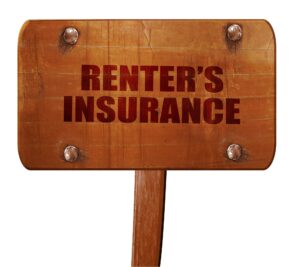Navigating the renter’s insurance application process can be difficult, especially if it’s your first time. Understanding these procedures can make the process smoother and more efficient, whether the damage is the result of theft, fire, or another covered disaster. Here’s an easy way to effectively file a renters insurance claim.
1. Know Your Policies
Before you do anything else, it’s essential that you fully understand your renter’s insurance policy. Familiarize yourself with the coverage limitations and exclusions included in your policy. Understanding the details of your policy can help you decide which losses are eligible for compensation and which losses require out-of-pocket costs.
2. Document the Damage
Valid documentation is required for a valid claim. Start taking full photos or videos of any loss or damage. This visual evidence supports your claim and accurately describes the damage. Conduct a thorough inventory of all lost or stolen items, including their description, date of purchase, and estimated value. Any receipts or other proof of purchase should be retained as these will support your claim.
3. Reporting the Incident
Contact your insurance company as soon as you can trace the incident. Insurance policies often require prompt reporting, which can help prevent delays in claim processing. Provide accurate and complete details of the incident, such as date, time, and description of loss or damage. Follow your insurance company’s instructions to ensure your claim is reported accurately.
4. Filing a Police Report
If your claim relates to theft, vandalism, or other criminal offenses, a report to the police is usually required. This report is important for insurance claims and any future legal proceedings. Obtain a copy of the report or report number for your records and provide detailed details of the incident in the report.
5. Working with an Adjuster
After you file a claim, an insurance adjuster may be hired to assess the damage and calculate the amount of compensation. Make sure you have all the information and documents you need to provide to the adjuster. At this stage, collaboration and transparency are crucial. If you have any questions about the process or the adjuster’s conclusions, you can ask for clarification.
6. Keep Records of Communications
It is critical to keep a complete record of every communication with the insurance company during the claims process. Keep a copy of all written communications, including letters and emails. When you receive a call, write down the time, date, who called you, and the details of the call. Keeping complete records will help you track the status of your claim and resolve any issues.
7. Following Up
Follow up on your claims proactively. Be sure to provide any additional information or documentation requested by your insurance company promptly and contact them regularly to see how your claim is progressing. By actively participating in the process you can move your claim forward and reduce the chance of setbacks.
8. Review the Settlement Offers
Once the claim has been processed, your insurance company will send a settlement offer. Through careful review, ensure that the quote accurately reflects your level of loss and is consistent with the cover provided by your policy. If you feel the quote is not enough, you can negotiate with your insurance company. Provide additional supporting documentation or evidence during these negotiations.
9. Know Your Rights
It is important to know your rights as an insured person. Insurers must respond to claims quickly and fairly. If you believe your claim has been handled unfairly or you have experienced issues such as denials or underpayments, you have the right to appeal the decision. Check the appeals process in your policy and consider seeking legal advice if necessary.
Conclusion
To file a renters insurance claim, there are some important procedures to follow: understanding your policy, documenting the injury, and working with an adjuster. By always being proactive and well-prepared, you can ensure that the process is effective. Having complete documentation, being vigilant about your rights, and following them will make the claims process smoother and help you recover from the unexpected.
FAQs
1. What should I do first if an incident occurs?
Taking photos or videos and conducting a thorough inventory of the damaged or lost items is the first step in documenting the damage or loss. Then contact your insurance company to report the incident as soon as possible. Make sure you follow their guidelines for filing your claim.
2. How do I know if my renter’s insurance covers the damage?
To find out what is covered, check your renter’s insurance policy. If your policy covers damages, check the coverage limits, deductibles, and any exclusions. If you are unsure, please check with your insurance company.
3. Must a police report be filed for each charge?
Cases of theft, vandalism, or other criminal activity usually require a report to the police. Even though other types of damage do not require a police report, you should still follow your insurance company’s guidelines for reporting the incident.
4. How do I ensure that my supporting documentation is sufficient for my claim?
Provide accurate and complete documentation, such as photos or videos of before and after damage, a complete inventory of lost or damaged goods, and any receipts or other proof of purchase. Your claim will be stronger if your supporting documentation is more complete and accurate.
5. How can an insurance adjuster help make a claim?
An insurance adjuster will assess the damage, review your information, and calculate how much money you should receive based on your policy’s coverage. After inspecting the damage, they may ask for more details or documentation.
6. How do I check the status of my claim?
Keep a complete record of all communications with your insurance company, including phone calls, emails, and letters. Contact your insurance company regularly to check on the progress of your claim and provide any other details as necessary.



